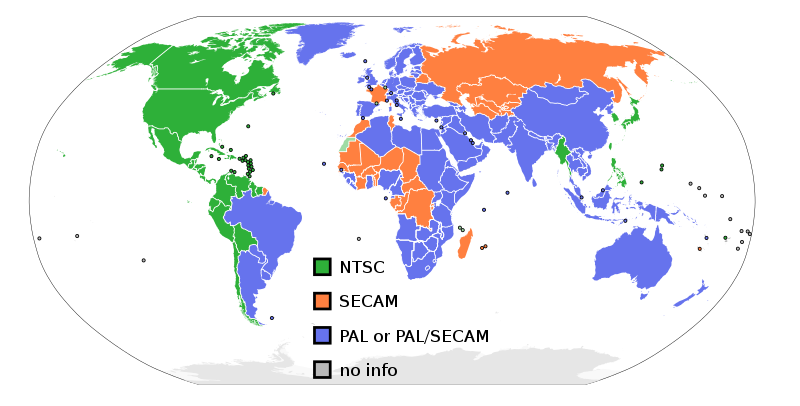Dave Cross encourages the dependence upon proprietary software by complaining that the Free Software Foundation’s recent 25th birthday video should have been distributed in non-free formats so people could see the video.
A surface analysis would reveal that proprietors support their own video formats exclusively. A deeper more significant analysis would reveal what users are left with after installing free and non-free software.
MacOS X and Microsoft Windows don’t come with all the software needed to play Flash video, Java applet-driven video, Microsoft Video codecs, or Apple’s QuickTime codecs. So when Apple distributes movies in some codec wrapped in QuickTime, only MacOS users have the software to play it. Same for Microsoft Windows users with Microsoft Video codecs. One commonly has to get additional software to play movie files. Users who install these programs are installing proprietary patent-encumbered software. Given Cross’ complaints one can only assume that this kind of onesidedness is okay despite how it leaves users in a lurch unable to play anything they come across and, more importantly, how adding the non-free movie players leaves users with non-free software.
Proprietors leave users with non-free software—software users are not free to inspect, share, or modify. If that software does something that any user doesn’t want (various bugs, failing to run in the user’s native language, spy on the user’s activities, to name a few examples), users have no legal means to alter the software to keep the functionality they like and delete the functionality they don’t like. Proprietary software takes away users’ freedom to run their computers as they wish.
But when the FSF distributes their videos in Ogg Vorbis+Theora licensed to share at least verbatim (licensing which is better than Microsoft or Apple’s licensing) they encourage users to get software to play the videos. VideoLAN Client (VLC for short), and Miro are two such programs. VLC & Miro both run on all the major operating systems (GNU/Linux, Microsoft Windows, MacOS X), both are free software, and both play a lot of audio and video files (VLC also plays DVDs). The Java applet the FSF used is also free software (it’s the same applet Wikipedia uses), so if you have Java installed you can play the video directly on the website. You’re left with free software and a movie you have license to share. The PlayOgg.org campaign can help you if you need more help acquiring or playing free media.
Playing Ogg Vorbis+Theora movie files is about to become a lot easier. Testing versions of Mozilla Firefox come with an Ogg Vorbis+Theora player built-in. Websites using the <video> HTML element will show a movie box without the need to install anything beyond Firefox. Users eager to test that software can get the latest builds and test it out. In time, Firefox’s production release (the version most Firefox users use) will feature these improvements and Firefox will ask users to upgrade to this version. This move adds pressure on other web browser developers to support Ogg Vorbis+Theora, the <video> element, and supporting Ogg Vorbis+Theora increases the chances that we’ll all be able to build our culture around free media.
Cross asks “Java was proprietary (and therefore verboten) until very recently. What did they do before that?” Before Java became free software the FSF advocated for change to eliminate dependence on non-free software and to make a free Java. The FSF wrote an essay about what they called “The Java Trap“—free software programs with non-free software dependencies such as a Java program that relied on the formerly non-free Sun Java runtime. The FSF also encouraged the development of free software Java replacements and hackers had been working on just such a thing. I maintain that it is that hard work which resulted in increased competition for Sun, Sun’s shift in policy, and relicensing their Java software to become free software.
In other words, running proprietary software doesn’t result in the creation of more software freedom. When we run more proprietary software we start to think of the proprietor’s interests as an acceptable state of affairs no matter how much the proprietor restricts our work using our computers. We might even defend their onesidedness which leaves us dependent on their software and with no media to share. When we put in the work to fight for our software freedom we’re left with software that respects our freedom to share, modify, and use.
Finally, Cross notes that “The Free Software Foundation never ever use the term “Open Source Software” as it dilutes their brand.”. The FSF’s objection to the term “open source” stems from the difference in philosophy between the free software and open source movements. Richard Stallman has written two essays on this topic (I linked to the latter but the former is linked from there), spoken about these philosophies at virtually every talk or interview he gives, and answers emails about it any time it comes up. The FSF would like to get people to think of software freedom, not the small subset of programmatic efficiency issues the phrase “open source” was coined for.
 Stephen Fry has a celebratory video
Stephen Fry has a celebratory video Big Buck Bunny
Big Buck Bunny